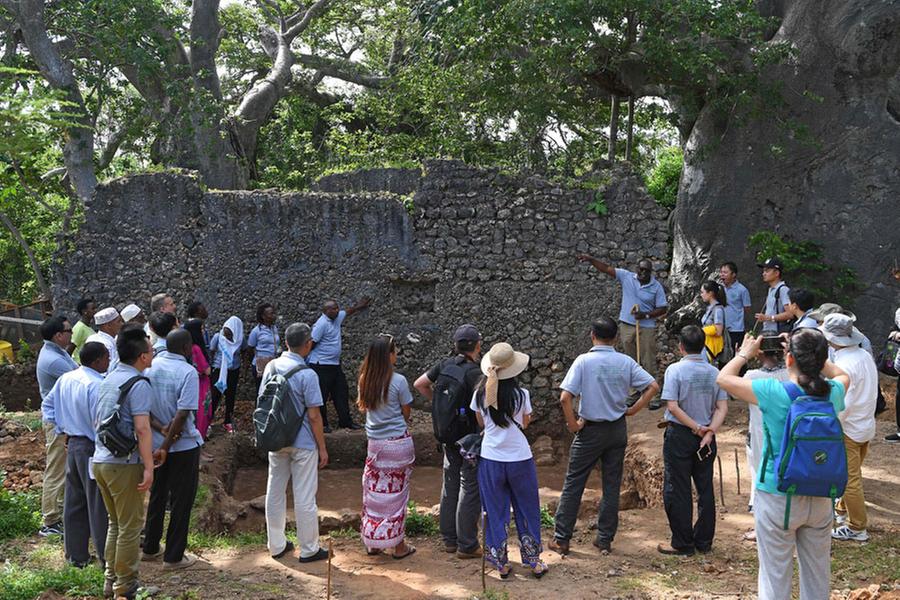Kenya excavates skeletons of people with Chinese blood
chinadaily.com.cn | Updated: 2017-08-01 15:16
 |
| American archeologist Chap Kusimba introduces an archeological site of Manda Island in Lamu county, Kenya, to researchers, on July 29, 2017. [Photo/Xinhua] |
A team consisting of archaeologists from China, the United States and Kenya announced last Friday the excavation of three human skeletons associated with Chinese blood at the first "Ancient and Contemporary Relations between China and East Africa" conference opened in Lamu county, off the northern coast of Kenya, Xinhua News Agency reported.
The team leader Kusimba, a professor with American University, said it marked the first time such relics were found in East Africa.
All the skeletons had front teeth that are exclusive for the East Asians and one of them could be determined to be from the same period when Chinese admiral Zheng He traveled to East Africa in the 15th century.
The other two are determined to be living in a period after Zheng's expeditionary voyages.
Kusimba said these people might have come to East Africa through land trade routes or the Maritime Silk Road, adding that no belongings were found at their tombs.
Chinese navigator, explorer and diplomat Zheng He, known as the Christopher Columbus in China, might have come to East Africa among his seven voyages to the Indian Ocean between 1405 and 1433 during the Ming Dynasty (1368-1644).
Zhu Tiequan, an archaeologist with Guangzhou-based Sun Yat-sen University, was quoted as saying that the excavation on the island began in December 2012.
- Kunming Zheng He Int'l Cultural and Tourism Festival kicks off
- Zheng He Memorial Hall unveiled in SW China
- Kenya seeks a revival in textiles
- Kenya, China work together on research
- Kenya's new China-built railway carries 150,000 in two months
- Kenya eyes more Chinese tourists after Jack Ma's visit
- Xi's gift to Britain's monarch on show
























